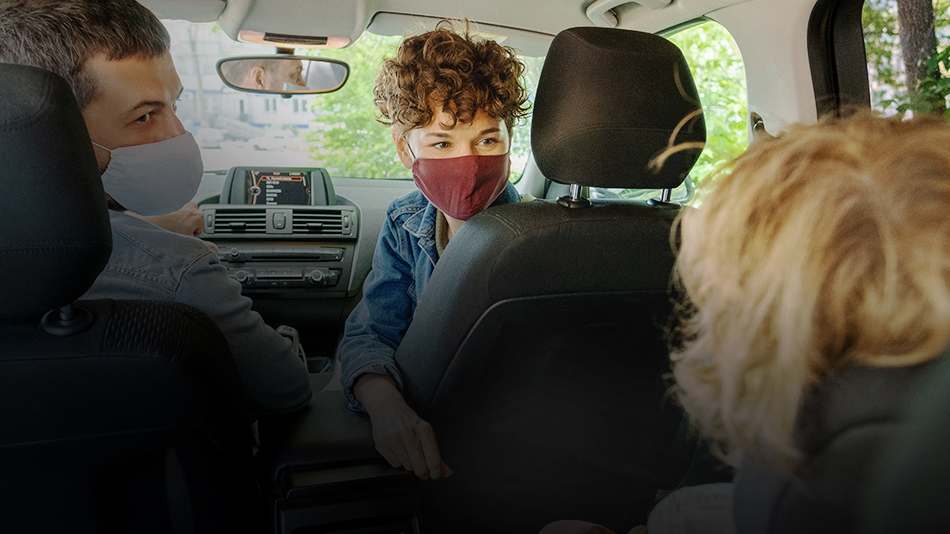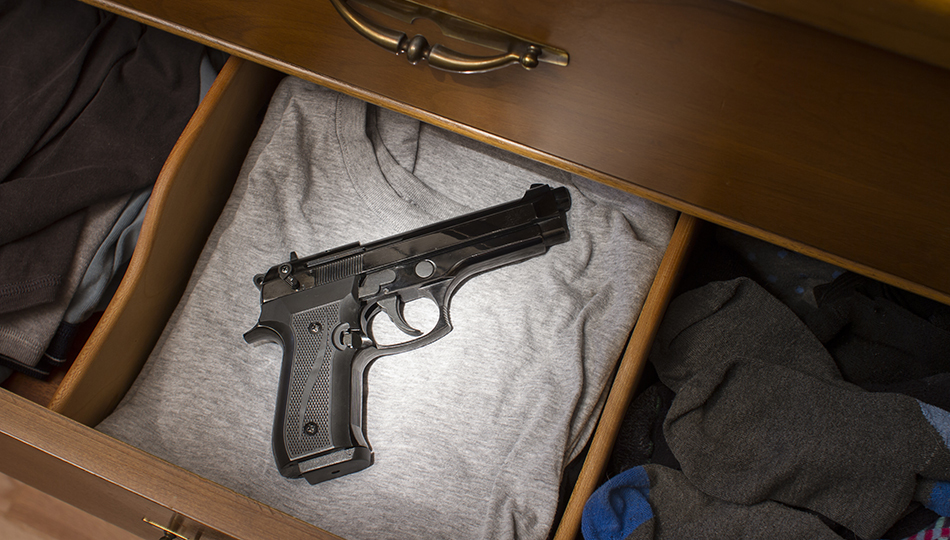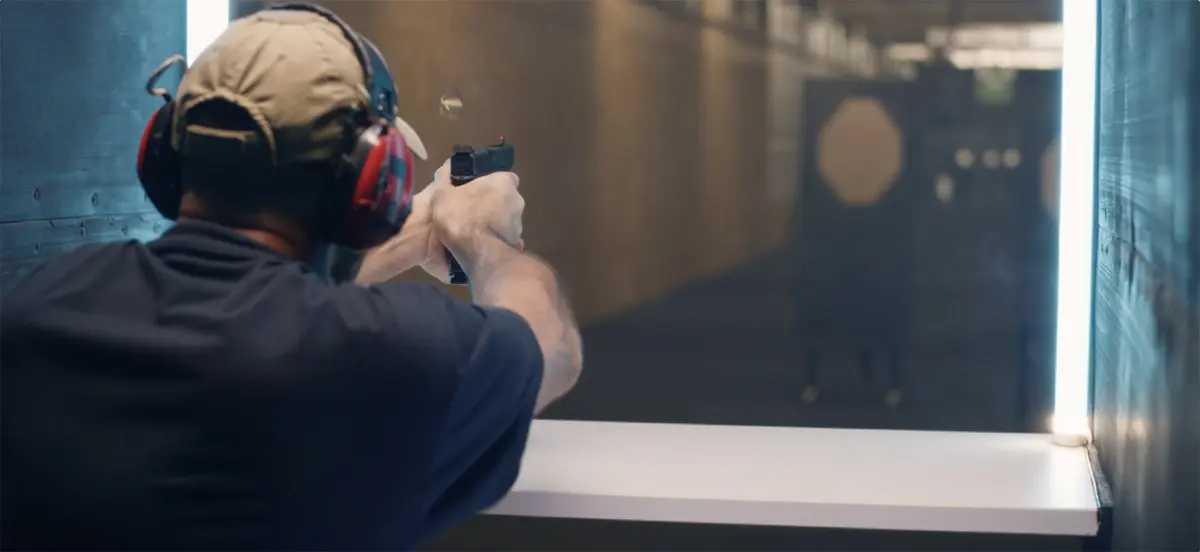
During these uncertain times with the spread of COVID-19, decisions such as whether to open schools and how to do that are rapidly changing and can be hard to keep up with. Some school districts are offering in person classes while others are offering online or hybrid in-person/online educational option. But what are the state laws when it comes to carrying firearms in school zones? To begin the conversation on the lawfulness of carrying a deadly weapon on school premises in New Mexico, it is important to understand what “carrying a deadly weapon” means.
What the Law Says
New Mexico law defines carrying a deadly weapon as being armed with a deadly weapon by having it on the person, or in close proximity thereto, so that the weapon is readily accessible for use. N.M. Stat Ann § 30-7-1.
New Mexico courts have upheld that this definition applies to unlawfully carrying a deadly weapon on school grounds and that whether or not a weapon is nearby and readily accessible for use is a question of fact for a jury to decide. State v. Salazar, 123 N.M 347 (App.1997). In Salazar, the New Mexico Court of Appeals held that a reasonable jury could find that a gun—which was loaded and stored in a secured trunk of a vehicle, parked in a high school parking lot—constituted carrying a deadly weapon for purposes of unlawfully carrying a deadly weapon on school premises. This was because the firearm could have been easily accessed and used. Id.
Read more on New Mexico Gun Law
In New Mexico, it is unlawful to carry a deadly weapon on school premises except by:
- A peace officer,
- School security personnel,
- A student, instructor, or other school-authorized personnel engaged in army, navy, marine corps or air force reserve officer training corps programs or state-authorized hunter safety training instruction,
- A person conducting or participating in a school-approved program, class or other activity involving the carrying of a deadly weapon; or
- A person older than nineteen years of age on school premises in a private automobile or other private means of conveyance, for lawful protection of the person’s or another’s person or property. N.M Stat. Ann. § 30-7-2.1.
What Constitutes School Premises?
The term “school premises” means the buildings and grounds, including playgrounds, playing fields and parking areas and any school bus of any public elementary, secondary, junior high or high school in or on which school or school-related activities are being operated under the supervision of a local school board; or any other public buildings or grounds, including playing fields and parking areas that are not public school property, in or on which public school-related and sanctioned activities are being performed. Id. Violating this law could result in a class four felony conviction. Id.
This raises the question which many members are calling us about. If a child is enrolled in online education, does their home become school premises while their student attends classes causing them to have to forfeit their gun rights if they choose to have their child learn remotely? Although there is no case law on this situation due to these being unique and unprecedented times, I can confidently state that your home does not become school premises for the purposes of firearm prohibitions if you choose to have your child learn from home remotely. First, your home is not public property and second, to decide this otherwise would be a tremendous infringement on the Second Amendment rights we all share.
What About Universities?
Universities are treated similarly with just a few exceptions. As it relates to lawfully carrying a deadly weapon, a “university” is defined as a baccalaureate degree-granting post-secondary educational institution, a community college, a branch community college, a technical-vocational institute, or an area vocational school. It is unlawful to carry a deadly weapon on university premises with the same exceptions previously mentioned regarding school premises. Also similarly, “university premises” means the buildings and grounds of a university, including playing fields and parking areas of a university, in or on which university or university-related activities are conducted; or any other public buildings or grounds, including playing fields and parking areas that are not university property, in or on which university-related and sanctioned activities are performed. Violating this law could result in a petty misdemeanor.
We must also consider federal law in any discussion of school zones. Under the federal Gun-Free School Zones Act, firearms are prohibited in a school zone, which means in or on the grounds of a public, parochial or private school; or within a distance of 1,000 feet from the grounds of a public, parochial or private school. 18 U.S.C. § 921(a)(25). Under this law, school means a school which provides elementary or secondary education, as determined under state law. 18 U.S.C. § 921(a)(26).
This federal law has 7 exceptions including but not limited to:
- the possession of a firearm on private property not part of school grounds;
- carry of a firearm by a person licensed to do so by the State in which the school zone is located; and
- the possession of an unloaded firearm that is locked either in a container or firearms rack in a motor vehicle. 18 U.S.C. § 922 (q)(2)(B)(i-vii).
During the spread of COVID-19, the New Mexico Public Education Department has given the various districts latitude in deciding how to approach reopening schools. To better understand what is happening in schools near you, it is best to reach out to your specific district with inquires.
If you have any questions about the laws surrounding carrying a firearm on school or university premises in New Mexico, contact U.S. LawShield and ask to speak with your Independent Program Attorney.
The preceding should not be construed as legal advice nor the creation of an attorney-client relationship. This is not an endorsement or solicitation for any service. Your situation may be different, so please contact your attorney regarding your specific circumstances. Because the laws, judges, juries, and prosecutors vary from location to location, similar or even identical facts and circumstances to those described in this presentation may result in significantly different legal outcomes. This presentation is by no means a guarantee or promise of any particular legal outcome, positive, negative, or otherwise.





Leave A Comment